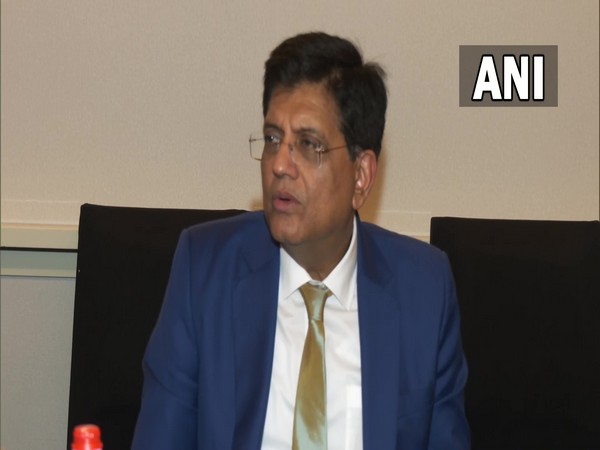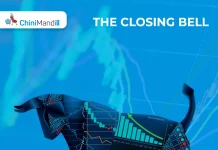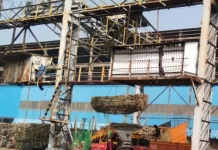Los Angeles [US], September 10 (ANI): “We are in the process of firming up our own digital framework and laws, particularly regarding privacy and data. Therefore, India, while continuing to engage with the trade track in the IPEF, will wait for final contours to be decided before the formal association,” Union Minister for Commerce and Industry Piyush Goyal said on Saturday.
“In the meantime, our officials will be participating in the discussions with an open mind and in the best interests of the people of India and businesses in India,” Goyal said while addressing a media briefing on Saturday after concluding the IPEC ministerial meet.
Speaking of India not joining the trade pillar, one of the four pillars of the Indo-Pacific Economic Framework (IPEF), Goyal said that there are certain areas in which a broader consensus is yet to emerge.
“India has engaged very exhaustively in the various streams of discussion on 3 out of 4 pillars related to supply chains, tax and anti-corruption, and clean energy. One pillar that deals with trade, the contours of the framework on commitments required on the environment, labour, the digital trade and public procurement are certain areas in which a broader consensus is yet to emerge,” he added.
Goyal said that the countries that believe in fair trade came together to work towards long-term engagement in an open Indo-Pacific region.
“Fruitful discussions were held over the last four days to bring together a group of like-minded countries with shared interests. These principles of fair trade will help our economies, create jobs and bring prosperity to our people,” Union Minister added.
He complimented Secretary of Commerce Gina M Raimondo and United States Trade Representative Katherine Tai for making the IPEC a success.
“They have been very supportive of India throughout the discussions and negotiations,” Goyal said.
“I compliment all member countries for laying down the broad contours of the framework and future engagements in such a short span. It is a record of sorts. Such speed in multilateral engagements reflects the commitment of all the 14 countries.”
“This group of 14 countries will define the rules of trade amongst countries which believe in fair play and transparency, rules based trading in future,” he added.
Earlier today, at the framework’s first in-person ministerial summit in Los Angeles, US trade representative Katherine Tai confirmed that India will not be joining the trade pillar, one of the four pillars of the Indo-Pacific Economic Framework (IPEF).
“India is not now in the trade pillar of IPEF, Union Minister for Commerce Piyush Goyal and I have been talking a lot. We have our bilateral structure the Trade Policy Forum, which should be meeting by the end of this year again and we covered the same issues in that bilateral channel and minister we are very close touch,” Tai said.
A top official said that India stands for its independent trade policy and added that before going ahead with joining the trade pillar of IPEF New Delhi will observe the pros and cons of the binding commitments.
“There are some binding commitments that have been laid out by the United States and India is being cautious” the official said, “India stands on its own feet, we have our own independent policy,” the official asserted.
Union Minister for Commerce and Industry Piyush Goyal on Friday said that a robust Indo-Pacific Economic Framework for Prosperity (IPEF) is being proposed to be presented soon in Parliament, and India will take its decisions on different aspects based on the national interest.
Goyal said that India is a big provider of technology services to US companies and a robust framework is being proposed to be presented to Parliament soon. “India is looking to have contemporary and modern laws in the digital world while maintaining high levels of data privacy,” he added.
He said that within the framework, “we can begin engaging among member countries on different areas of mutual interest. India will take its decisions on different aspects of the IPEF framework based on our national interest.”
“We had a useful engagement among member countries of the Indo-Pacific Economic Framework for Prosperity. Officials have worked to prepare the ground for useful interactions between ministers. By tomorrow we hope to create a robust framework,” Goyal said.
Union Minister Piyush Goyal is on a six-day visit to San Francisco and Los Angeles to attend the first Indo-Pacific Economic Framework (IPEF) ministerial meeting. Goyal met US Trade Representative Katherine Tai ahead of the meeting.
“I’ve also had the opportunity to have bilateral discussions with USTR Ambassador Tai and US Commerce Secretary Gina Raimondo. Both were very excited about the good work happening between India and US,” Goyal said.
“They were extremely favourable to expanding ties in trade and investments including hi-tech areas. They were also wishing to further resilient supply chains between India and US,” he added.
The Indo-Pacific Economic Framework for Prosperity (IPEF) was launched jointly by the USA and other partner countries of the Indo-Pacific region on May 23, 2022, in Tokyo.
India joined the IPEF and Prime Minister Narendra Modi attended the launch event along with US President Joe Biden, Japanese Prime Minister Kishida Fumio and other leaders from partner countries. Previously, virtual Ministerial Meetings were held immediately after the launch on May 23 and thereafter from July 26-27, 2022.
India is committed to a free, open and inclusive Indo-Pacific Region and would work towards deepening economic cooperation among partners for the growth and prosperity of the region. The framework is inclusive and allows flexibility to partner countries to associate with pillars based on their respective priorities, the Ministry of Commerce and Industry said in a statement.
IPEF, a group of 13 countries, is a multilateral economic framework. In recent times, India is seen as focusing on bilateral free trade agreements instead of multilateral ones. (ANI)












